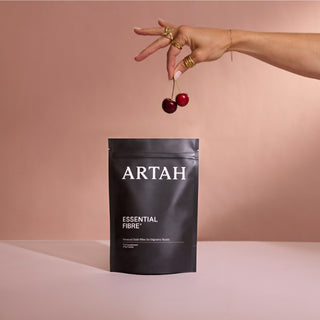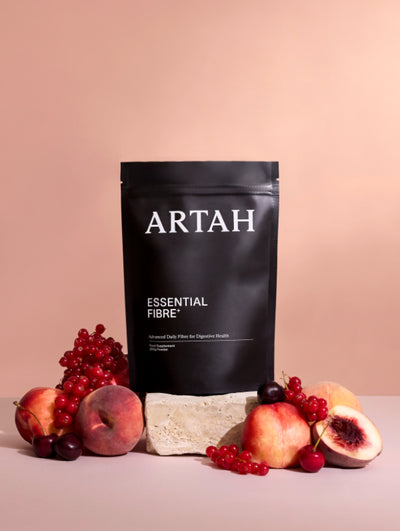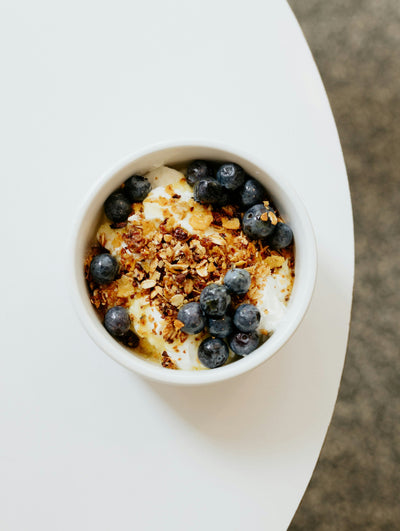When superfoods became trendy, the trendiest of them all was probably Kale; and we still have the sweatshirts to prove it. But just as quickly as it shot to popularity, kale was - and often still is - demonised for its potential effect on the thyroid. That's because Kale contains glucosinolates, a class of naturally occurring compounds found in cruciferous and other vegetables. If consumed in excess, they can potentially reduce our ability to make thyroid hormones, especially if we’re also lacking iodine. Compounds like these ones are often referred to as anti-nutrients, but before you put down your fork, don’t worry - unless you’re consuming buckets of raw kale every day, you probably don’t need to worry. Additionally, many food-based anti-nutrients, like those found in kale, are significantly reduced by cooking or freezing them. There are a lot of compounds classes as anti-nutrients in the plant world so it’s very difficult to avoid them if you're following a healthy diet, but it’s also unnecessary; dietary patterns high in fruit, vegetables, legumes and beans are associated with a wide array of benefits.
But there are other anti-nutrients that we need to be aware of. In fact, there are various chemicals, drugs, and even lifestyle factors that can interfere with our ability to absorb and/or use the nutrients that we consume in our diet, and these anti-nutrients can impact our nutrient status without us even realising it. Here are 4 you need to know about.
Alcohol
Alcohol is an anti-nutrient in more ways than one. Not only does it deplete an array of vitamins and minerals, including Vitamin A, Zinc, Folate, B6, B12, Magnesium, Vitamin D, and Vitamin C, but it can also cause inflammation in the gut, which impairs our ability to absorb nutrients. Whilst it is primarily detoxified in the liver, alcohol and its metabolites can cause inflammation in both the large and small intestine. (1) Additionally, studies show that alcohol promotes both dysbiosis, a disruption in the microbiome and alteration of the composition of bacteria, and bacterial overgrowth, which can alter absorption of protein, fat, and carbohydrates, and impact certain micronutrients, like Vitamin B12. (2)
Stress
Chronic stress is often referred to as one of the most powerful anti-nutrients out there. From a micronutrient point of view, it depletes Magnesium, Vitamin C, Vitamin B5, Vitamin B6 and Zinc. But it’s not just about nutrient depletion; there are an array of physiological adaptations that occur because of chronic stress which in turn, can impair nutrient absorption. To name a few:
- It reduces gastric secretions, which are essential for maintaining the acidic environment needed to digest food and combat pathogens.
- It creates an inflammatory response, which may activate immune cells and cause inflammation in the intestinal barrier. (3)
- It can negatively impact the health of the microbiota; studies have shown that it triggers a reduction of Lactobacillus bacteria and alters overall bacterial composition. (4)
Certain Medications
Medications can affect our micronutrient status directly and indirectly. Some, for example, directly affect the absorption, metabolism, and excretion of micronutrients, whilst others can cause side effects which can alter absorption, an increase physiological need, or a change to our metabolic health, which indirectly impacts micronutrient requirements. (5) Here are some common nutrient interactions that are helpful to understand:
- Oral contraceptives; most notably, Vitamin B6 and Vitamin B12, but also folate, Vitamins B2, Vitamin C, Vitamin E and minerals Magnesium, Selenium and Zinc (6)
- Antacids: can impact Iron, Vitamin B12, Magnesium, Calcium and Vitamin D, depending on the medication.
- Ibuprofen: Chronic or overuse can cause changes to the microbiome, now termed NSAID related dysbiosis, as well as increased intestinal permeability. (7)
- Anti-histamines: Chronic use can deplete Vitamin A, Folate, Vitamin B12, and Vitamin D.
- Prescription medications will also have their own interactions, so it's important to speak to your doctor or research any potential effects so that you can help combat them with food and lifestyle modifications.
Artificial Food Additives
Continued intake of food additives, like those found in ultra-processed food, can damage the gut and alter the health of the microbiome. (8) Common culprits are synthetic food colourings, emulsifiers, and nitrates.
What to Do
Some anti-nutrients are easier to avoid or reduce than others, but the first step is understanding what the possible sources are in your everyday life.
- Stress management is always a theme; try finding a method that works for you that you can do consistently, whether it's yoga, breath work, journalling, meditation or counselling.
- Reduce UPFs. Try to move towards a more whole food, natural diet and avoid chronic intake of UPFs. This is especially important for children.
- Consider supplemental support with a high quality multi-vitamin and mineral supplement, like Advanced Multi-Nutrient.
Disclaimer: The information presented in this article is for educational purposes only and is not intended to diagnose, prevent, or treat any medical or psychological conditions. The information is not intended as medical advice, nor should it replace the advice from a doctor or qualified healthcare professional. Please do not stop, adjust, or modify your dose of any prescribed medications without the direct supervision of your healthcare practitioner.
References:
1. Bishehsari F, Magno E, Swanson G, Desai V, Voigt RM, Forsyth CB, Keshavarzian A. Alcohol and Gut-Derived Inflammation. Alcohol Res. 2017;38(2):163-171. PMID: 28988571; PMCID: PMC5513683
2. Schnabl B, Brenner DA. Interactions between the intestinal microbiome and liver diseases. Gastroenterology. 2014;146(6):1513–1524. doi: 10.1053/j.gastro.2014.01.020
3. Konturek PC, Brzozowski T, Konturek SJ. Stress and the gut: pathophysiology, clinical consequences, diagnostic approach and treatment options. J Physiol Pharmacol. 2011 Dec;62(6):591-9. PMID: 22314561.
4. Konturek PC, Brzozowski T, Konturek SJ. Stress and the gut: pathophysiology, clinical consequences, diagnostic approach and treatment options. J Physiol Pharmacol. 2011 Dec;62(6):591-9. PMID: 22314561.
5. Prescott JD, Drake VJ, Stevens JF. Medications and Micronutrients: Identifying Clinically Relevant Interactions and Addressing Nutritional Needs. J Pharm Technol. 2018 Oct;34(5):216-230. doi: 10.1177/8755122518780742. Epub 2018 Jun 20. PMID: 34860982; PMCID: PMC6109862.
6. Palmery M, Saraceno A, Vaiarelli A, Carlomagno G. Oral contraceptives and changes in nutritional requirements. Eur Rev Med Pharmacol Sci. 2013 Jul;17(13):1804-13. PMID: 23852908.
7. Maseda D, Ricciotti E. NSAID-Gut Microbiota Interactions. Front Pharmacol. 2020 Aug 7;11:1153. doi: 10.3389/fphar.2020.01153. PMID: 32848762; PMCID: PMC7426480.
8. PMCID: PMC8266754.



















































